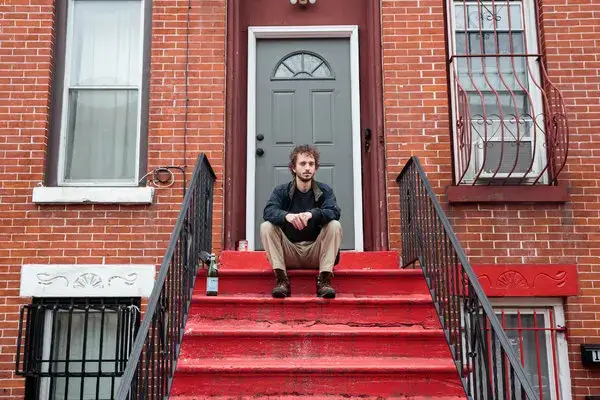New York City is known for its high cost of living, and finding affordable housing can be a major challenge for residents. In recent years, the rental market in NYC has become increasingly difficult, with rising rent prices, limited availability, and competition for available units. This has led to what is known as the “rental crisis” in NYC, a situation in which renters are struggling to find affordable and stable housing.
Table of Contents
ToggleDefinition of the rental crisis in NYC
The rental crisis in NYC refers to the difficulty that renters in the city face in finding affordable and stable housing. This can include high rent prices, limited availability of units, and competition for available apartments. The crisis can also include situations in which renters are forced to accept substandard living conditions or are at risk of losing their homes due to rising rent prices or eviction.
Statistics on the severity of the crisis
The severity of the rental crisis in NYC is evident in the statistics. According to data from the New York City Rent Guidelines Board, the median rent for a one-bedroom apartment in the city was $2,732 in 2020. This represents a significant increase from the median rent of $1,895 in 2010. Additionally, the vacancy rate for rental apartments in NYC is currently at an all-time low, hovering around 3%. This means that there are few available units for renters to choose from, and competition for these units is fierce.
Overview of the challenges facing renters in NYC
The challenges facing renters in NYC are numerous and multifaceted. High rent prices are a major concern for many residents, as the cost of living in the city is already high. Limited availability of rental units also presents a significant challenge, as there are often many potential renters competing for a single apartment. This can make the search for housing stressful and time-consuming.
In addition to these issues, renters in NYC may also face challenges related to housing quality and security. Some landlords may neglect to maintain their properties, leading to issues with pests, mold, or other hazards. Renters may also be at risk of being evicted, either due to rising rent prices or because the landlord wants to use the unit for another purpose. This can create instability and insecurity for renters, who may be forced to move frequently or struggle to find new housing.
The rental crisis in NYC also disproportionately affects certain groups of people. Low-income earners, people of color, and immigrants are often more vulnerable to housing insecurity and may face additional barriers in finding affordable and stable housing.
Overall, the rental crisis in NYC presents significant challenges for residents who are trying to find affordable and stable housing. It is a complex issue that requires both short-term and long-term solutions in order to address the needs of renters in the city.
Tips for finding an affordable apartment in NYC
Finding an affordable apartment in New York City can be a daunting task, especially during a rental crisis. With high demand and limited supply, it’s important to be proactive and strategic in your search for a new home. Here are some tips for finding an affordable apartment in NYC:
Research different neighborhoods and their average rent prices:
One way to find an affordable apartment in NYC is to research different neighborhoods and their average rent prices. Some neighborhoods, such as Manhattan and Brooklyn, tend to have higher rent prices compared to other areas of the city. However, there are still pockets of affordability within these neighborhoods. For example, neighborhoods like Washington Heights and Inwood in Manhattan, or Bedford-Stuyvesant and Bushwick in Brooklyn, tend to have lower rent prices compared to other areas.
Additionally, you can also consider looking for apartments in neighborhoods outside of Manhattan, such as Queens, the Bronx, and Staten Island. These areas tend to have lower rent prices compared to Manhattan, and they also offer a variety of diverse neighborhoods to choose from.
To research average rent prices in different neighborhoods, you can use online resources like Zillow, StreetEasy, and RentHop. These websites allow you to search for apartments by neighborhood, price range, and other criteria. You can also check out the New York City Rent Guidelines Board website, which publishes annual reports on rent trends in the city.
Utilize online resources and real estate agents to find available apartments:
There are many online resources and real estate agents that can help you find available apartments in NYC. Some popular websites for finding apartments include Zillow, StreetEasy, and RentHop. These websites allow you to search for apartments by neighborhood, price range, and other criteria. You can also set up alerts so that you are notified when new apartments become available in your desired location and price range.
Real estate agents can also be a valuable resource in your apartment search. They can help you find available apartments that meet your specific criteria and can also negotiate on your behalf with landlords or property management companies. Keep in mind that real estate agents typically charge a fee for their services, so be sure to factor that into your budget.
Negotiate with landlords or property management companies for a lower rent price:
Another strategy for finding an affordable apartment in NYC is to negotiate with landlords or property management companies for a lower rent price. While it may seem intimidating to negotiate rent, it can often be worth it if it helps you find a more affordable apartment.
Here are some tips for negotiating rent:
- Know your budget and what you can afford: It’s important to know your budget before you start negotiating rent. Determine what you can afford based on your income and expenses, and use that as a starting point for negotiations.
- Research the market: Research the average rent prices in the neighborhood where you are looking for an apartment. This can help you determine if the rent price being offered is fair or if it’s possible to negotiate a lower price.
- Be prepared to compromise: Negotiating rent is often a give-and-take process, so be prepared to compromise. For example, you may be willing to pay a slightly higher rent price in exchange for a longer lease term or other concessions from the landlord.
- Use your leverage: If you have a strong rental history or good credit, be sure to highlight these factors to the landlord or property management company. This can help demonstrate that you are a reliable tenant and may make them more willing to negotiate the rent price.
In conclusion, finding an affordable apartment in NYC requires research, strategy, and sometimes a bit of negotiation. By researching different neighborhoods and their average rent prices, utilizing online resources and real estate agents, and negotiating with landlords or property management companies, you can increase your chances of finding an affordable apartment in NYC.
Strategies for saving money on moving costs
Moving to a new home can be an exciting and stressful experience, especially if you’re moving to a new city or state. One of the biggest challenges of moving is the cost, which can quickly add up if you’re not careful. Here are three strategies for saving money on moving costs:
Consider a hiring a moving company
One way to save money on moving costs is to do the move yourself. This means renting a truck, gathering supplies like boxes and tape, and handling the logistics of getting your belongings from one place to another. If you have a small apartment or just a few large items to move, this can be a cost-effective option.
Rental truck companies often offer different sizes of trucks to fit your needs, so you can choose the one that’s right for your move. Be sure to factor in the cost of fuel, insurance, and any additional supplies you might need when calculating the total cost of a DIY move.
Alternatively, you could hire a moving company like Your Hometown Mover to handle the move for you. This can be a good option if you have a lot of heavy or fragile items, or if you’re not comfortable driving a large truck. Just be sure to shop around and get moving quotes from multiple companies to ensure you’re getting the best deal.
Ask friends and family for help with the move
Another way tosave money on moving costs is to ask friends and family for help. This can be especially useful if you have a lot of heavy or bulky items to move, or if you don’t have the time or energy to handle the move on your own. Just be sure to coordinate with your helpers in advance and provide refreshments and snacks to show your appreciation.
Donate or sell unnecessary items to reduce the amount of items being moved
Finally, one way to save money on moving costs is to reduce the amount of stuff you have to move. This can be done by going through your belongings and getting rid of anything you don’t need or use anymore. This can include clothing, furniture, appliances, and other household items.
You can donate these items to a thrift store, a charitable organization, or even to a friend or family member who could use them. Or, you can sell them through a garage sale, online marketplace, or consignment store. This can not only save you money on moving costs, but it can also help declutter your home and make it easier to pack and unpack.
Overall, there are several strategies you can use to save money on moving costs. Whether you choose to do the move yourself, enlist the help of friends and family, or reduce the amount of stuff you have to move, these strategies can help you save money and make your move as stress-free as possible.
Options for temporary housing during the moving process
Moving can be a stressful and overwhelming process, especially if you’re in the midst of a rental crisis. One of the biggest challenges can be finding temporary housing during the move. There are several options available to help you find a place to stay while you’re in between homes.
One option for temporary housing during a move is renting a short-term apartment or vacation rental. This can be a great option if you’re moving to a new city and need a place to stay while you search for a permanent home. Short-term rentals can range from a few days to several months, depending on your needs. You can find short-term rentals through online platforms such as Airbnb or VRBO, or you can search for them through real estate agents or property management companies.
One of the benefits of renting a short-term apartment or vacation rental is that it can often be more spacious and comfortable than a hotel room. This can be especially helpful if you have a lot of belongings to store during the moving process, or if you need a place to work while you’re between homes. However, it’s important to keep in mind that short-term rentals can be more expensive than other options, and they may not be available in all areas.
Another option for temporary housing during a move is staying with friends or family. This can be a great way to save money and reduce the stress of the move. If you have friends or family members who are willing to put you up for a few days or weeks, it can be a convenient and affordable solution. However, it’s important to be considerate of your host’s needs and to set clear boundaries so that your stay is comfortable for everyone.
Utilizing a hotel or hostel can also be a good option for temporary housing during a move. Hotels and hostels can range in price and amenities, so it’s important to do your research and find one that fits your budget and needs. Some hotels and hostels offer discounts for extended stays, so it may be worth it to book a room for a week or two if you need a longer-term solution. One of the benefits of staying in a hotel or hostel is that they typically provide all the necessary amenities, such as towels, sheets, and toiletries. However, they can be more expensive than other options, and they may not be as spacious or comfortable as a short-term rental or a friend’s home.
Ultimately, the best option for temporary housing during a move will depend on your budget, needs, and preferences. It’s important to consider all your options and do your research to find the solution that works best for you. Whether you choose a short-term rental, stay with friends or family, or opt for a hotel or hostel, it’s important to have a plan in place so that you have a place to stay while you’re in between homes.
Legal protections for renters in NYC
As a renter in New York City, it is important to understand your legal rights and protections in order to advocate for yourself and ensure that your landlord is treating you fairly. In this section, we will discuss some of the key legal protections for renters in NYC, including your rights as a renter, what to do if your landlord tries to evict you illegally, and how to seek legal assistance if necessary.
Understanding Your Rights as a Renter in NYC
As a renter in NYC, you have certain legal rights that are protected by state and city law. These rights include the right to a safe and habitable apartment, the right to privacy, the right to fair treatment, and the right to free speech, among others.
One of the most important rights that renters have is the right to a safe and wearable apartment. This means that your landlord is required to maintain your apartment in a safe and habitable condition, including making necessary repairs and ensuring that the apartment is free from hazards. If your landlord fails to make necessary repairs or does not maintain the apartment in a safe and wearable condition, you have the right to request repairs and, in some cases, to withhold rent until the repairs are made.
Another important right that renters have is the right to privacy. Your landlord is not allowed to enter your apartment without your consent, unless there is an emergency or you have given your landlord permission to enter. If your landlord violates your right to privacy, you may have legal recourse.
In addition to the right to a safe and wearable apartment and the right to privacy, renters in NYC also have the right to fair treatment. This means that your landlord cannot discriminate against you based on your race, religion, gender, national origin, or other protected characteristics. If you believe that your landlord is discriminating against you, you can file a complaint with the New York City Commission on Human Rights.
Finally, renters in NYC also have the right to free speech. This means that your landlord cannot prohibit you from expressing your views or exercising your First Amendment rights, as long as you are not disrupting the peaceful enjoyment of other tenants or causing damage to the property.
What to Do If Your Landlord Tries to Evict You Illegally
If your landlord tries to evict you without following the proper legal process, you may have legal protections available to you. In NYC, landlords must have a valid reason for evicting a tenant, such as nonpayment of rent or violating the terms of the lease. Landlords are also required to follow a specific legal process for evicting tenants, which includes serving the tenant with a notice of eviction and giving the tenant an opportunity to contest the eviction in court.
If your landlord tries to evict you without following the proper legal process, you can contest the eviction in court. You can also seek legal assistance to help you understand your rights and to represent you in court. It is important to remember that you have the right to a legal defense, even if you cannot afford to pay for an attorney.
Seeking Legal Assistance
If you are facing an eviction or other legal issue as a renter in NYC, it is important to seek legal assistance as soon as possible. There are several organizations in NYC that offer free or low-cost legal assistance to renters, including Legal Aid Society, Housing Court Answers, and New York Legal Assistance Group.
You can also seek legal assistance from a private attorney, although this may be more expensive. If you cannot afford to pay for a private attorney, you may be able to find a pro bono attorney who will represent you for free.
In addition to seeking legal assistance, it is important to keep records of all communications with your landlord. Document any issues with your apartment, as this can be helpful if you need to seek legal assistance or contest an eviction. Some ways to document issues with your apartment include:
- Taking photos or videos of the issue: Documenting the issue with photos or videos can be helpful in showing the extent of the problem and how it has affected your living conditions.
- Keeping a written record of the issue: Keep a written record of the issue, including the date and time it was reported to your landlord, any actions taken by your landlord to address the issue, and any ongoing issues or problems.
- Notifying your landlord in writing: If you have reported the issue to your landlord, it is a good idea to follow up with a written notice outlining the problem and requesting that it be fixed. This can serve as evidence if you need to seek legal assistance or contest an eviction.
- Seeking legal assistance: If you have documented the issue and your landlord has failed to address it, you may want to consider seeking legal assistance. An attorney can help you understand your rights and options for addressing the issue.
It is important to remember that you have the right to a safe and wearable apartment, and your landlord has a legal obligation to maintain the apartment in such a condition. If you are facing issues with your apartment that are not being addressed by your landlord, it is important to take action to protect your rights and seek legal assistance if necessary.
Conclusion
In conclusion, the rental crisis in NYC is a significant and ongoing issue that affects many residents. The high demand for housing and limited supply of affordable options has resulted in skyrocketing rent prices and a competitive market for apartments.
Throughout this article, we have discussed several strategies for finding an affordable apartment and saving money on moving costs. We have also highlighted the importance of understanding your rights as a renter and seeking legal assistance if necessary.
It is important to remember that while the rental crisis in NYC can be overwhelming and daunting, there are still options available for those willing to put in the time and effort to search for them. This may involve researching different neighborhoods, utilizing online resources and real estate agents, negotiating with landlords, and considering temporary housing options during the moving process.
Additionally, renters can advocate for change by supporting organizations and initiatives that seek to address the rental crisis, such as affordable housing developments and rent control measures. This can be done through volunteering time, donating funds, and participating in community organizing efforts.
Ultimately, the rental crisis in NYC is a complex and multifaceted issue that will require the involvement and efforts of both individuals and larger systems in order to see meaningful change. However, by continuing to search for and advocate for affordable housing options, renters can work towards a future where stable and affordable housing is accessible for all.
Check out our moving guides to understand what it takes to move to another state.




